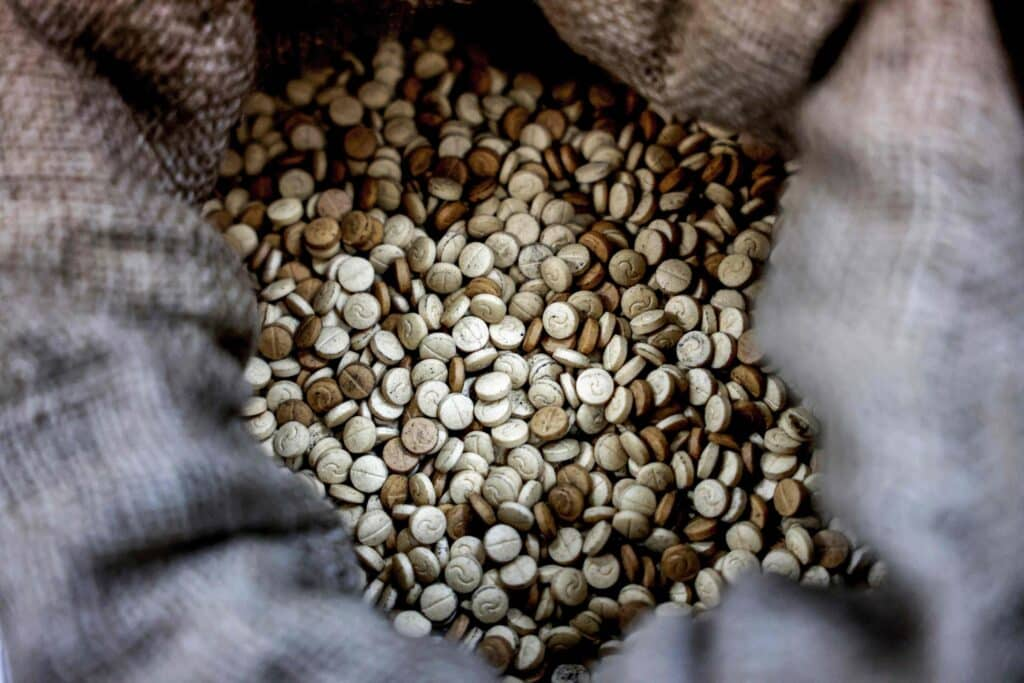
The United States imposed sanctions on Wednesday against a Hezbollah financing network and three individuals who generate revenue for Hezbollah by trafficking illicit narcotics. As hostilities escalate in south Lebanon, the sanctions indicate renewed efforts from the Biden administration to “expose and disrupt the illicit schemes that underpin Hizballah’s ability to continue its violent attacks.”
Treasury’s first group of targets “are part of a network of commercial enterprises owned or controlled by Hizballah.” The targets include Silvana Atwi, secretary to Muhammad Qasim al-Bazzal — a senior official on Hezbollah’s financial team whom Treasury sanctioned in 2018. Along with Atwi, Treasury designated G.M. Farm, a Lebanese company he owns that is involved in Hezbollah-run financial projects.
Washington also sanctioned Haidar Hussam al-Din Abd al-Ghafar, identified as a member of Hezbollah’s financing team, along with two companies he owns, Global Tradeline SARL and Liban Oui SARL. Both companies are in the food and dairy business and generate profits for Hezbollah. Treasury also sanctioned Houssam Hamadi, “a businessman and Hezbollah finance team associate” along with his Lebanon-based firm United Sons.
Ghaffar and Hamadi, like Atwi, are linked to Bazzal. In 2022, Ghaffar’s company, Global Tradeline SARL, transferred at least half a million dollars to Bazzal, while Hamadi works for Global Tradeline SARL according to his LinkedIn profile, a company associated with Bazzal.
Wednesday’s designations also include three individuals involved in the production and trafficking of captagon, an amphetamine-like drug: Khaldoun Hamieh, Abdellatif Hamideh, and Raji Falhout. The captagon trade is centered in Syria and Lebanon and is a major source of revenue for both Hezbollah and the regime of Syrian President Bashar Assad.
Hamieh is a Lebanon-based kingpin who controls captagon factories in Sayyida Zainab — a Damascus suburb under the control of Hezbollah and Iran’s Islamic Revolutionary Guard Corps — and helps facilitate overland smuggling operations. Treasury added that “on at least one occasion” Hamieh “donated nearly one million dollars to Hizballah.”
Hamideh owns a paper roll factory in Aleppo, Syria that serves as a front for narcotrafficking operations. Hamideh has shipped more than $1.5 billion worth of captagon to Europe hidden in “industrial paper rolls.” Notably, one of the largest captagon busts on record involved the seizure in Italy of 84 million captagon pills concealed in this manner. According to Treasury, Falhout leads “a gang that has worked with the Syrian Military Intelligence Directorate and Hizballah to generate revenue from kidnappings and Captagon trafficking.”
The European Union (EU) sanctioned Hamideh and Falhout in April 2023 as part of a broader package targeting more than a dozen Syrian individuals and entities implicated in the captagon trade. The EU’s captagon-related sanctions remain more extensive than Washington’s, but Treasury’s action this week brings the United States closer in line to the Europeans.
Washington has long been aware that Hezbollah leverages narcotrafficking to bankroll its operations. In June 2023, the U.S. State Department released a congressionally mandated interagency strategy to “disrupt, degrade, and dismantle” Assad-affiliated narcotrafficking operations. The strategy recognizes Hezbollah’s role in the captagon trade and notes that Washington “has numerous tools available, including economic sanctions” to block Hezbollah “from using the U.S. financial system to launder drug proceeds.” Wednesday’s sanctions indicate that the Biden administration has begun to follow through on its word.
Still, Hezbollah’s illicit fundraising methods extend beyond the Syrian narco-trade. The Biden administration can build on its latest sanctions by tracking Hezbollah’s criminal enterprises across the globe — from gun running to blood diamonds — in an effort to further drain the terror group’s coffers.
